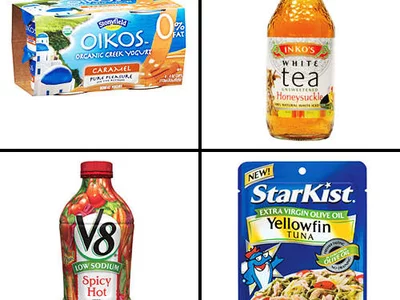Stop dieting! Over-dieting is worse than over-training
Perhaps the #1 biggest long term mistake those of us with uber-motivation in fitness make is to diet too hard and for too long. A diet is meant to be just that, a reduction or change in the food we eat in order to accomplish a goal. If we “diet” all the time, then we aren’t really dieting at all. At what point is a diet no longer a diet, and it is just 'the way you eat'? Just like we can over-train and decrease our performance, recovery and inhibit muscle growth, we can also over-diet and inhibit our fat-loss and miss our best look. It’s extremely important to take time off from dieting (or at least dial it back) just as we do from training for a number of reasons.

To understand why we should not diet all the time, we have to understand the body's tremendous ability to adapt to anything. This adaptability is the reason we can grow muscle, it is the reason we know not to touch a hot stove, and it is also the reason we can go from eating 3000 calories per day to 1500 calories per day and not wither away to nothing. We grow muscle as a result of the body adapting to heavier loads and thus preparing itself to be able to lift them in the future. If we do this repetitively enough, we can get much bigger and stronger muscles as the body becomes used to lifting these heavy weights. Likewise, and on a mental aspect, we know not to touch a hot stove as many of us have done it before, and once we touch it and get the negative feedback of being burned, our brain adapts by telling us not to do it again (most of us anyway J ). The same is true of dieting. If we eat a lot of fats, our body gets better at digesting and metabolizing fats, but if we diet all the time, our body’s get used to it, and thus it is no longer an effective tool to lose fat. If you diet for a year straight, your body will figure this out, and it does not WANT to be 5% body fat, so eventually, even if you are eating 1000 calories per day, the body is going to adapt by slowing the metabolism more and more and putting on fat stores, which it sees as a survival mechanism. If we want to get our body to an unnatural level of body fat, we need to trick it of sorts....We need to drastically reduce caloric intake over a short period of time and thus slingshot past a "healthy" body fat level to ridiculous leanness, and do it before the body is able to figure out what is going on and make adjustments that prevent any further weight loss. Should we attempt to maintain 4% body fat year round, the body sees this as a threat to survival and one of two things are going to happen (or both): Your metabolism is going to adapt and you will eventually begin to gain fat, or you are going to stay lean and burn more and more muscle. Most definitely though, it will be a combination of both.
It's very important to have an off-season, or a period of time where you dramatically increase not only your caloric intake, but also the types of foods you eat. The trick is to try to do it in a way where you stay in as good as shape as possible while eating as BAD as possible. The better you look whilst eating chicken wings and ice cream, then the better you will look when you switch to boiled chicken and broccoli! The strategic dieter will reverse diet and begin to incorporate both a drastically increased total caloric intake, as well as introduce heavier, fattier foods to give the body some exercise at digesting large amounts of fats. Let’s say our contest diet gets to as low as 1500 calories and we get down to 6% body fat…If we are able to increase our caloric intake to 3500-4000 and still maintain 10-11% body fat, we are in excellent position to lean out quickly and easily once we drop the calories again.
Overall, both training and dieting have an optimal level. Training more does not always mean we look better, in fact, it never does at a certain point. The same is true with dieting, if we over-diet, we will slip further and further back until we are left with a weak metabolism and only an average body for all that hard work.





















